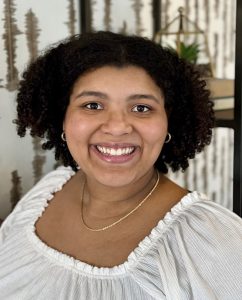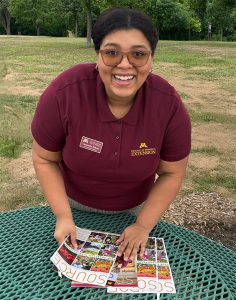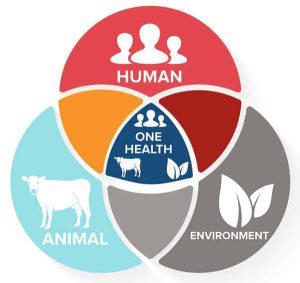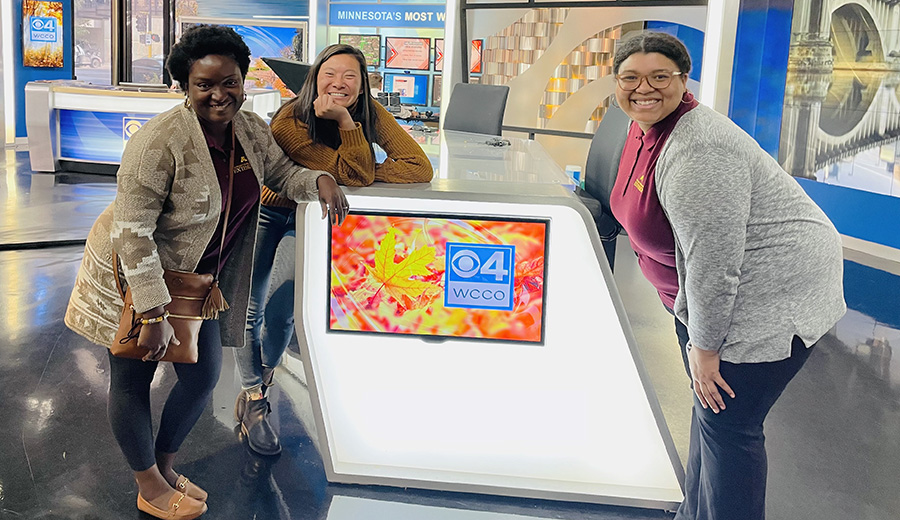FEBRUARY 2024

Cassie Edlund
Senior Communications Manager and Evaluation Specialist
Last month, UMASH had the pleasure to warmly welcome Cassie Edlund back to the team!
Cassie previously served as an integral member on the UMASH communications team as a graduate research assistant while completing her Masters in Public Health (MPH) from the University of Minnesota School of Public Health. Learn more about her innovative work on the team.
After completing her degree and spending a year at Extension, Cassie is excited to be back at UMASH as our Senior Communications Manager and Evaluation Specialist. In this role, Cassie will use her public health communication expertise to design and implement effective communications strategies to promote health and safety for agricultural populations across the Upper Midwest.
Get to know more about Cassie in this Q&A and catch up on her journey back to UMASH, areas of interest, advice for those interested in a career in public health, ag health and safety, and much more!
Q&A
How did your previous personal and professional experience lead you back to UMASH?
 After graduating with my degree, for the past year, I’ve had the privilege of applying my communication skills at the University of Minnesota Extension. There, I worked to amplify the voices of a range of communities – tribal nations, urban, suburban, and rural – around issues like nutrition, family resilience, mental health, and recovery across Minnesota. I focused on crafting narratives that authentically shared the stories of individuals, families, and communities and celebrated their strengths, knowledge and experiences.
After graduating with my degree, for the past year, I’ve had the privilege of applying my communication skills at the University of Minnesota Extension. There, I worked to amplify the voices of a range of communities – tribal nations, urban, suburban, and rural – around issues like nutrition, family resilience, mental health, and recovery across Minnesota. I focused on crafting narratives that authentically shared the stories of individuals, families, and communities and celebrated their strengths, knowledge and experiences.
While I moved on, UMASH’s work never left me. The ongoing issues faced by farming communities – stress, mental health, access to healthy food, financial stability, and aging – continued to resonate deeply across the Minnesota communities I worked with at Extension. What I appreciate about both Extension and UMASH is how they share an unwavering commitment to building trust and fostering strong connections and partnerships with the communities they serve. I’m excited to continue this work and collaborative efforts through my new role on the UMASH team.
How does your background in public health frame how you view agricultural health and safety?

My background in public health has taught me to look at the bigger picture of wellbeing, which is why UMASH’s unique, multi-disciplinary approach to agricultural health, centered on the One Health model, has always deeply resonated with me. It takes on a holistic view of well-being – encompassing physical, mental, emotional, and social aspects.
This shapes how I approach agricultural health and safety. In addition to focusing on individual behaviors, I also work to consider what other factors impact communities’ health, like the environment, working conditions of farmers and agricultural workers, access to resources like health care, policies that affect their lifestyle and social connections.
While focusing on preventing agricultural injuries, illness, disease and death, I also frame my work around the importance of not only raising awareness about risks but also showcasing the strengths that agricultural communities bring to the table.
What are your biggest areas of interest within agriculture health and safety?
As a public health communicator, my interests in agriculture health and safety center around storytelling and advocating for representation to foster equitable change. Drawing from my public health background and experience in public speaking and performance, I strongly believe in the power of storytelling to share important public health messages. By sharing authentic narratives and showcasing successful approaches within farming communities, we can create positive transformations and empower individuals to prioritize health and safety measures on their farms. Work like this is already happening with the Telling the Story Project, and I’m looking forward to exploring how personal narratives and prevention messages can help protect and strengthen the safety, health and wellbeing of agricultural communities.
I am passionate about advocating for BIPOC (Black, Indigenous, and People of Color) communities and emerging farmers within the agricultural sector. These groups often encounter unique challenges and barriers when accessing resources and support in the ag industry. Yet, these farmers are present and persist. I strive to ensure that all ag communities, regardless of background, have the opportunity to thrive in safe and healthy agricultural environments.

Why is agricultural health and safety important to you?
– Cassie Edlund
What advice would you give youth who are interested in pursuing a career in agricultural health and safety?
For young people interested in agricultural safety and health, public health, or simply want to help people, there are many pathways and avenues to make a difference in your community. I’d encourage young people to get involved, whether that be through volunteering or joining local groups and organizations like Future Farmers of America (FFA) and 4-H, which offer leadership and networking opportunities and help create a sense of belonging for agriculture.
I’d also recommend exploring courses and educational training opportunities to learn more about common hazards in the agricultural industry and how to prevent injury, illness, and death in agricultural settings by wearing personal protective equipment (PPE) and using safe machinery and animal handling practices. Another great way to promote safety and health is to be a role model in your community by regularly using agricultural safety practices and speaking up about unsafe conditions or behaviors.
Remember, safety benefits everyone involved, and whether it be through research, education, policy, direct service or public health communications, you can make a meaningful impact and drive positive change in your community.

